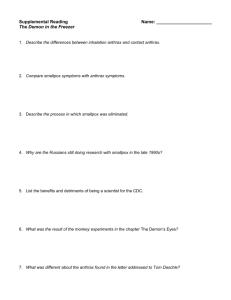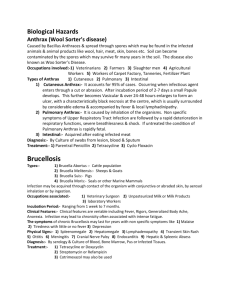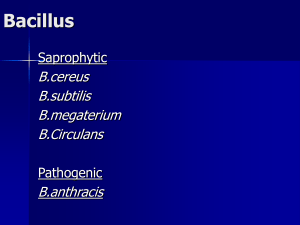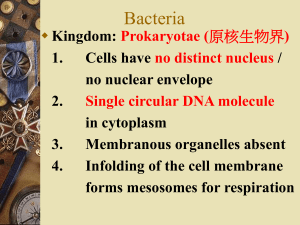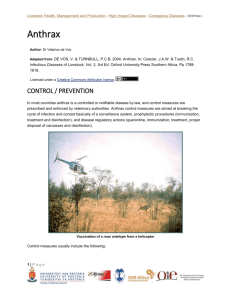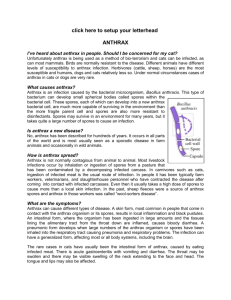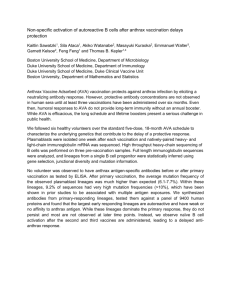NAME: :_____DATE:______ Scientific Method
advertisement
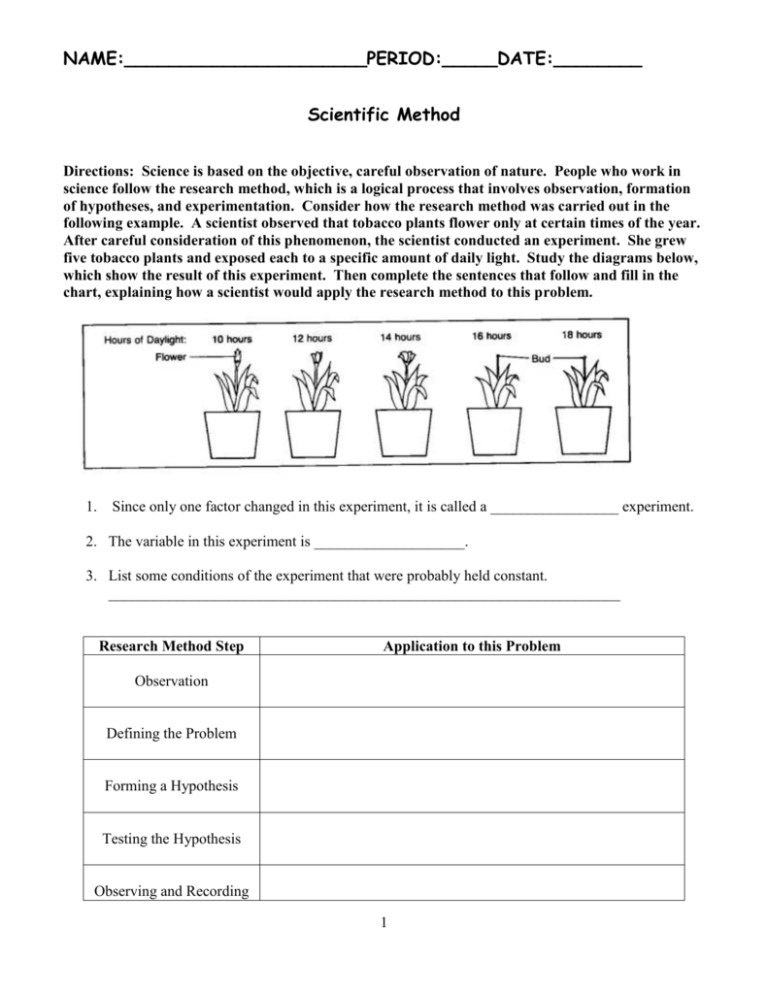
NAME:______________________PERIOD:_____DATE:________ Scientific Method Directions: Science is based on the objective, careful observation of nature. People who work in science follow the research method, which is a logical process that involves observation, formation of hypotheses, and experimentation. Consider how the research method was carried out in the following example. A scientist observed that tobacco plants flower only at certain times of the year. After careful consideration of this phenomenon, the scientist conducted an experiment. She grew five tobacco plants and exposed each to a specific amount of daily light. Study the diagrams below, which show the result of this experiment. Then complete the sentences that follow and fill in the chart, explaining how a scientist would apply the research method to this problem. 1. Since only one factor changed in this experiment, it is called a _________________ experiment. 2. The variable in this experiment is ____________________. 3. List some conditions of the experiment that were probably held constant. ____________________________________________________________________ Research Method Step Application to this Problem Observation Defining the Problem Forming a Hypothesis Testing the Hypothesis Observing and Recording 1 Results Drawing Conclusions Reporting the Results Directions: Many significant problems in science have been solved through the use of the research method. The following describes on such problem. Read the description and answer the questions that follow. Anthrax is a severe, contagious disease of animals and people. Animals with anthrax usually die suddenly. Robert Koch discovered a bacterium responsible for anthrax. When outside a living body, anthrax bacteria form spores, reproductive cells that can exist for long periods of time with no food or water. Spores can be killed only by burning. If any animal with anthrax did not die, it never caught anthrax again. If a mild form of anthrax had existed, it could have been deliberately given to an animal as a vaccine to make the animal immune. But a mild form of anthrax did not exist. Louis Pasteur had an idea for immunizing animals from anthrax. He collected some anthrax bacteria from infected animals. He then heated the bacteria to weaken, but not kill them. In 1881, Pasteur inoculated half of a herd of sheep with the anthrax bacteria he had weakened. After a period of time, he inoculated the whole herd with full-strength anthrax bacteria. The animals that had not previously received the weakened form of anthrax became ill and died. Those that had previously received the weakened anthrax bacteria remained healthy. 1. Animals that died of anthrax were burned before they were buried. Why do you think this was done? 2. Complete this three hypotheses that Pasteur made: a. If burning kills anthrax bacteria, then __________________________________ ________________________________________________________________ b. If an animal that survives anthrax can never get it again, then _______________ ________________________________________________________________ c. If full-strength bacteria either kill an animal or make it immune, then ________ ________________________________________________________________ 3. What conclusions did Pasteur come to as a result of his experiment? 2 4. Would Pasteur’s experiment have been as effective if he had used only two sheep? Explain you answer. 3
